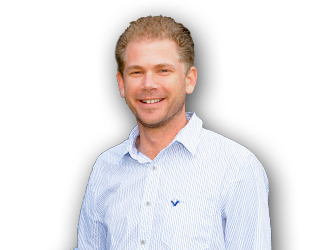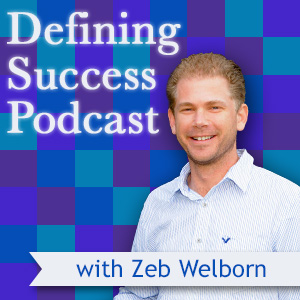Podcast: Play in new window | Download
 Wally Hauck is the author of two different books on leadership. One of the things Wally talks about extensively in this interview is leadership and trust. Trust between the manager and someone that person is managing. If you are interested in becoming a leader or you think you are in a leadership capacity in some different scenarios one of the things you really need to work on developing is trust. That is what I would like to highlight in this episode today: leadership and trust
Wally Hauck is the author of two different books on leadership. One of the things Wally talks about extensively in this interview is leadership and trust. Trust between the manager and someone that person is managing. If you are interested in becoming a leader or you think you are in a leadership capacity in some different scenarios one of the things you really need to work on developing is trust. That is what I would like to highlight in this episode today: leadership and trust
Wally Hauck, PhD has a cure for the deadly disease known as the typical performance appraisal. He is also the author of two books, The Art of Leading: Principles for Predictable Performance Improvement and Stop the Leadership Malpractice: How to Replace the Typical Performance Appraisal.
Zeb’s Take – Leadership and Trust
Wally talked a lot about employees and how they engage with the workforce. One of the things in the interview that really struck me is the importance of building trust between managers and employees and the ways to do that. In a leadership position you are constantly making agreements with people and if you take on that leadership role you need to make sure that you are agreeable to those agreements; that you do the things that you say you are going to do. If you don’t it really erodes trust with the people that you are working with and it makes it much more difficult for them to accomplish the things that they want. If you don’t do what you say you are going to do, it makes it easier for them to not do the things they say they will do. Leadership and trust go hand in hand.
If you want your employees ,or the people that are working for you, or the people that you are leading to do something that you ask of them you need to be accountable to them just as much as they need to be accountable to you. I think that’s one of the biggest problems that leaders face is being able to overcome that.
Here’s a personal example. There’s a membership committee through my local chamber of commerce that I’m the head of. I have a plan in my head of these things I want to accomplish with each meeting. I want to send a follow up email after each meeting. I want to send an email before the event to let people know the event is taking place. Honestly, sometimes I forget. I’ll forget to send the email after the meeting or before the meeting or maybe I’m ill prepared when the event comes, maybe I don’t prepare as well as I usually do. I’ve realized that in those situations it erodes some trust. For me, it’s really important to develop procedures and processes so that I don’t forget to do those things, so that I’m someone who does the things they say they are going to do. So they can see my leadership and trust in me. The same thing in the mastermind group I’m in: I really want to come up with a structure for these mastermind sessions. Sometimes I get so overwhelmed or so busy that I forget to put those procedures in place.
Another great idea Wally talked about was developing a checklist. Not just a checklist for your employee or the person you are trying to lead, but for yourself as well. If you are accountable for everything that you are supposed to be accountable for it makes it much more likely that the people you are leading, if they see you are checking off all the things that you are responsible for, it’s much more likely they will be checking off all the things that they are responsible for.
Sign up for our newsletter! Thanks for listening to the Defining Success Podcast.
Now, go out there and find your success!
Find out more about Wally Hauck and his books
Visit WallyHauck.com and download his free research article about the process and the success that one of his clients has received.
Quotes
- “This is how leaders still operate, and it drives me crazy. And I am here on this earth to change it. That’s why I’m passionate about it.”
- “The leader has a huge impact on the environment which therefore has a big impact on the individual performance. Everything is a system. It’s all interconnected.”
- “The root belief is people will not work if you don’t watch them and they won’t work if you don’t bribe them or threaten them, because they really don’t want to work — and that’s a bunch of bull.”
- “Very often what leaders do is they look at the mistakes employees make and they blame the employee, and they’ve got to stop doing that.”
- “We have an overabundance of bad leadership in the country. I’m sorry, I see it every single day. That’s why I’m passionate about looking for opportunities to stop it.”
- “Always manage your agreements and help others to manage their agreements.”
- “Make agreements with people and then keep it. That’s how you build trust. That’s a demonstration of integrity.”
- “Success is optimization.”
- “Optimization means you are doing the very best and there’s a balance. There’s a beautiful balance, where everything works beautifully together and you are optimizing the results that you are getting with the resources that are available to you.”
- “I think I am providing a service with this replacement performance appraisal that could really change the world. I’m pretty excited about it.”
More from the Interview
Wally worked for a large company and after being promoted several times he began to wonder why he was so miserable there. One time he got a call for a large purchase order that he got excited about. He talked with his boss to work out some of the details, things were looking good. That week his company had an event and Wally got an award for his sales performance partially because of that large order, even though he hadn’t closed the deal yet. A few days later when the order was put on hold and didn’t go through he was berated by one of the high ups in his office and received a terrible performance review after that. He says, “ I went from a hero to a bum.”
“This is how leaders still operate, and it drives me crazy. And I am here on this earth to change it. That’s why I’m passionate about it.”
He began to do some research and reading. He read The Turning Point and it talked about systems thinking. It helped him answer why he was so upset. “Most organizations still today evaluate the individuals and they fail to take full account of how the environment impacts the performance and how the leader has a huge impact on the environment which therefore has a big impact on the individual performance. Everything is a system. It’s all interconnected.” He says, “It made so much sense to me.”
He did more reading and more research. Including learning from a couple people who studied from Dr. Deming, who taught about thinking in systems in Japan. Deming says that one of the deadly diseases for organizations is the performance appraisal.
Performance reviews can cause a lot of damage in areas that are needed for performance. It doesn’t accomplish what it is supposed to accomplish. Part of the reason that it doesn’t is because managers are not skilled at having open and honest conversations. But the main reason is that the employee gets a grade. When you get a grade in an organization that has dysfunctional departments that can impact your performance it just makes everyone hate the whole process.
“The root belief is people will not work if you don’t watch them and they won’t work if you don’t bribe them or threaten them, because they really don’t want to work — and that’s a bunch of bull.”
“The whole thing is based on flawed assumption and we’ve got to do away with it if we are really going to survive in the global economy now.”
Frederick Taylor designed the system that is commonly used today, scientific management. It worked great in the 1800s, but that’s 140 years ago. 140 years ago factory work was menial tasks. Frederick Taylor was going to go into a factory and teach the best way to do these simple tasks and if they don’t do it right they aren’t going to get paid, or get a bonus, and if they keep doing it they’ll get fired. The work was simple easy repeatable tasks for uneducated employees. That is rarely the case today.
Some unintended consequences of performance reviews are that they damage trust and engagement in the workplace. People start to hide things, they don’t tell the truth, or they hold information back.
He says, performance reviews are a tool used by 80-90% of organizations today and it closes down open and honest communication. I think that’s an outrage.
He designed a replacement for the typical performance review that he calls the complete performance improvement process, or CPIP. You have a meeting with an employee, but there is no grade, instead you create a partnership with the manager and the employee to improve the interpersonal communication between the two of them and others and the system interactions within the department and between the departments.
The manager is the judge and the employee is the judged, in the typical appraisal.
In the typical performance appraisal the manager is looking at the employee and saying here’s what you’re doing right and here’s what you’re doing wrong. And they are doing it with incomplete information and they are doing it with a bias, so it never comes out right. Instead, what if the two of you came together looked at the quality of the interactions between you and said, how can we make our interactions better? How can we make our communication better? How can we make our system better? How can we improve our processes between the two of us? So you are partnering to work on the interactions not trying to fix the people.
 “The first things leaders need to do is to realize that they impact the environment or the context in which people work. Very often what leaders do is they look at the mistakes employees make and they blame the employee, and they’ve got to stop doing that.”
“The first things leaders need to do is to realize that they impact the environment or the context in which people work. Very often what leaders do is they look at the mistakes employees make and they blame the employee, and they’ve got to stop doing that.”
Leaders should ask three questions:
1. What process is not working?
2. What is the first 15% of that process?
3. How can you improve the first 15% of the process?
By asking those three questions you change the process and the performance gets better.
“Leaders are doing stupid things, causing the bad behavior, and then blaming the employee for it.”
“We have an overabundance of bad leadership in the country. I’m sorry, I see it every single day. That’s why I’m passionate about looking for opportunities to stop it.”
What makes a great leader is a few things. One is, understand that they create an environment of performance or dysfunction, and if there is dysfunction it is probably something in the environment. Number two, they have to know how to build trust. Three, you have shared objectives. Four, you are confident in what needs to be done.
“What I want leaders to do is I want them to manage trust in every interaction they do with their staff, their employees, the people they want to lead. This is something everyone can do.”
There are values issues and systems issues. Values issues are behaviors, such as behaving with integrity and treating people with respect, that’s the foundation of performance. They must always look at themselves and ask, am I keeping my word with my employees and am I making agreements and keeping them; am I setting the right role model for the behavior that I’m looking for from employees?
“Always manage your agreements and help others to manage their agreements.”
“Make agreements with people and then keep it. That’s how you build trust. That’s a demonstration of integrity.”
An agreement is specific, it has 4 elements: it’s specific, it’s measurable, it’s time sensitive and there’s a predictable process.
“Being fully engaged. You want profitability, you want passion, you want engagement, but it’s optimization — is really what success for me is about. it can’t just be one area that defines success.”
“Optimization means you are doing the very best and there’s a balance. There’s a beautiful balance, where everything works beautifully together and you are optimizing the results that you are getting with the resources that are available to you.”
“I think I am providing a service with this replacement performance appraisal that could really change the world. I’m pretty excited about it.”













 Sushant Misra is the owner of Trep Talks, and he and I are in a mastermind together. He actually interviewed me on his show about six months ago. He’s a really bright guy, has a great advice. One thing that he brought up, which I have found to be true with the interviews I’ve done with people for The Defining Success Podcast, is that there is no big secret to success. It’s a great episode, I hope you all enjoy!
Sushant Misra is the owner of Trep Talks, and he and I are in a mastermind together. He actually interviewed me on his show about six months ago. He’s a really bright guy, has a great advice. One thing that he brought up, which I have found to be true with the interviews I’ve done with people for The Defining Success Podcast, is that there is no big secret to success. It’s a great episode, I hope you all enjoy!




